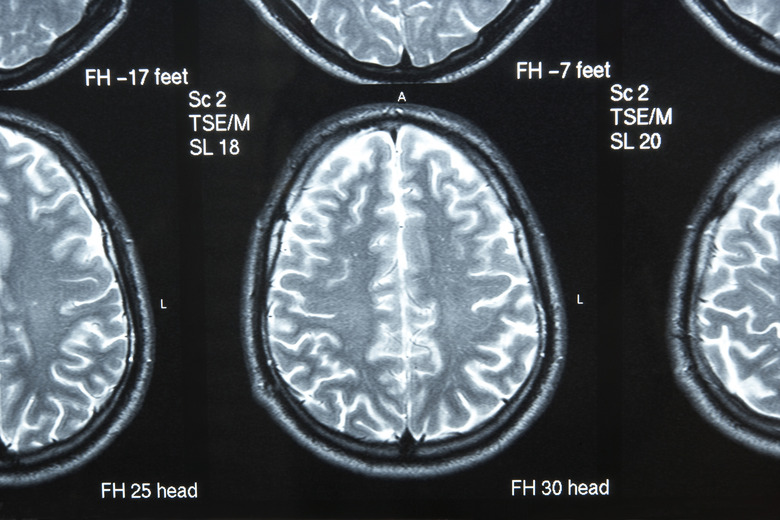Specialties Of The Right Side Of The Brain
The human brain is separated into two portions: the left brain and the right brain. Each portion has its own strengths. The two sides of the brain are connected to opposite halves of the body, according to Washington State University. Therefore, information received by the left-side sensory organs is processed first by the right side of the brain and vice versa. The left side of the brain controls language, math and logical reasoning skills. The right side of the brain controls creative, non-linear functions.
Spatial Relationships
Spatial Relationships
Spatial relationships between objects are processed by the occipital lobe, near the back of the neocortex, the frontal part of the brain. The occipital lobe's primary function is to process visual input. A three-dimensional image is formed from the two images collected by the eyes and transferred to the brain, which juxtaposes the two images. Spatial reasoning in the right brain takes the form of a seemingly intuitive calculation of position; that is, you can determine whether you have the room to slide into a parking space or merge into a busy highway lane without having to perform mathematical calculations.
Holistic Information Processing
Holistic Information Processing
The right side of the brain processes images differently than does the left side. Where the left side of the brain focuses on detail and individual parts of an image, the right brain focuses on the image as a whole. The right brain doesn't attempt to determine what an image is supposed to be but focuses instead on the overall shape.
This applies to other types of information, as well; the right brain typically looks at a topic of information as a whole before focusing on the details.
Abstract Language Skills
Abstract Language Skills
Language skills are another area in which the two sides of the brain differ. The right brain processes more abstract meanings of language, such as jokes or metaphors. Someone with right-brain damage will be unable to pick up on the metaphorical meanings of words, instead only focusing on the literal, descriptive meanings.
Cite This Article
MLA
Smathers, Michael O.. "Specialties Of The Right Side Of The Brain" sciencing.com, https://www.sciencing.com/specialties-of-the-right-side-of-the-brain-12745247/. 4 August 2010.
APA
Smathers, Michael O.. (2010, August 4). Specialties Of The Right Side Of The Brain. sciencing.com. Retrieved from https://www.sciencing.com/specialties-of-the-right-side-of-the-brain-12745247/
Chicago
Smathers, Michael O.. Specialties Of The Right Side Of The Brain last modified March 24, 2022. https://www.sciencing.com/specialties-of-the-right-side-of-the-brain-12745247/
